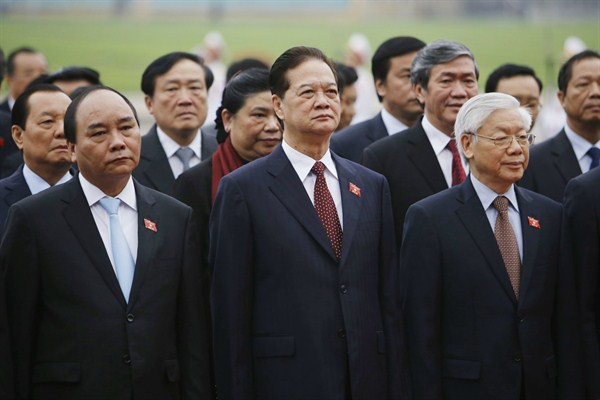For most of 2015, it looked as though Nguyen Tan Dung, Vietnam’s prime minister since 2006, would succeed in his audacious bid to succeed Nguyen Phu Trong as the head of the Communist Party of Vietnam (CPV). In the end, however, he was outmaneuvered in skirmishes over party rules, and undone by a whispering campaign that painted him as a dangerous opportunist. The contest was over even before the party’s 12th Congress convened on Jan. 21, 2016.
Contrary to the dominant narrative in international media coverage, the showdown in Hanoi had very little to do with how to handle ties with China. Rather it had everything to do with how the party aims to continue to rule Vietnam.
“We favor collective leadership and individual responsibility here,” explained Trong, who had rallied an “anybody but Dung” bloc to avoid being unseated as the party’s general secretary by the two-term prime minister. He added, “Some other countries call themselves democracies but their top leaders are despotic and arbitrary. I ask you—which system is more democratic?”

